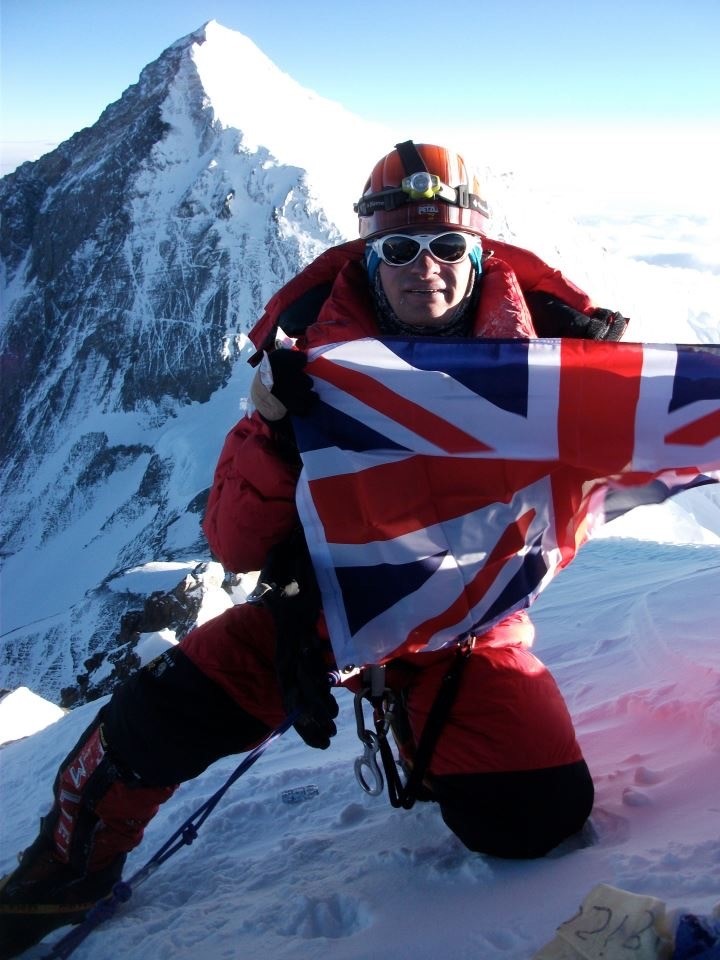Engineer climbing Everest for WaterAid
Tuesday 3rd March 2020 12:00

Alex on the summit of Lhotse, the fourth highest mountain in the world
Frostbite, snow blindness and starvation are some of the dangers facing Thames Water’s Alex Holt as he attempts to climb the world’s highest mountain – without oxygen.
The 29-year-old from Reading will push himself to the limit of human endurance on the freezing slopes of Everest in a bid to raise thousands of pounds for WaterAid.
Thames Water has supported the charity since 1981, donating more than £35million over the years to give tens of thousands of people in countries like Bangladesh and Malawi access to safe water and sanitation.
Alex said: “It's going to be a ridiculously tough challenge. I’m motivated to get to the summit to raise money for WaterAid who do a lot of work in places like Nepal where there are serious issues with water supply.”
An accomplished mountaineer having already scaled two of the planet’s ten highest peaks, Alex is under no illusion about what lies ahead when he flies to Kathmandu on April 4. He has already been training for months and will spend several days acclimatising at Base Camp and hopes to reach the summit on May 20.
Thousands of people have climbed Everest, but only a few hundred have done so without oxygen.
Alex, waste networks area pumping manager for Thames Valley North, based in Oxford, said: “I’ve climbed since I was a teenager, including the fourth and sixth highest mountains in the world, also in the Himalayas.
“It’s the most stunningly beautiful region in the world, but also one of the most dangerous. I’ve seen bodies on the mountains. It’s very sad and a sobering reminder of the situation you’re in, and how things can go from good to bad really quickly.
“You need experience to realise what you are doing, and have that confidence to get yourself out of a mess, and have a bit left in the bank for Plan B. I am not the kind of person to risk my life getting to the summit.”
At almost 30,000ft, Everest is higher than the cruising altitude of most passenger jets and is in what is known as the Death Zone where the oxygen is insufficient to sustain life. Once on the summit, Alex won’t have long to enjoy it.
Alex said: “It’s really, really difficult to express how you feel when you reach a summit. It’s a moment of extreme satisfaction after many months of planning. It’s emotional, and spiritual. You are so high up it’s not like looking out of an aeroplane - you can see all around you and the curve of the Earth. It feels like you are on the moon.
“Then suddenly a jolt of reality hits as going down is the most dangerous part. Now the real work starts. You are tired and mistakes happen. This is when you really rely on your team-mates to look out for you.”
Even before he reaches the top, Alex will have battled extreme heat and cold, as well as starvation and fatigue. He said: “It can be very hot lower down the mountain with temperatures hitting 40 degrees. The sun can also reflect off the ice so much that you get sunburned on the roof of your mouth when you are breathing heavily. And if you leave your sunglasses off you can go snow blind. To be honest I fear that more than the cold which can get as low as -40 degrees C.”
To combat the cold Alex will wear a one-piece suit filled with down, the thickest and warmest boots available and three to four pairs of gloves and mitts. Despite this, Alex revealed he will still have to “wiggle his toes and fingers to stay warm.”
Alex will burn up to 20,000 calories a day on the mountain, an amount nearly impossible to replace at high altitude because the digestive system begins to shuts down, forcing him to rely on his body’s stores of fat instead.
To sponsor Alex visit his Just Giving page https://justgiving.com/fundraising/alex-holt-everest2020
